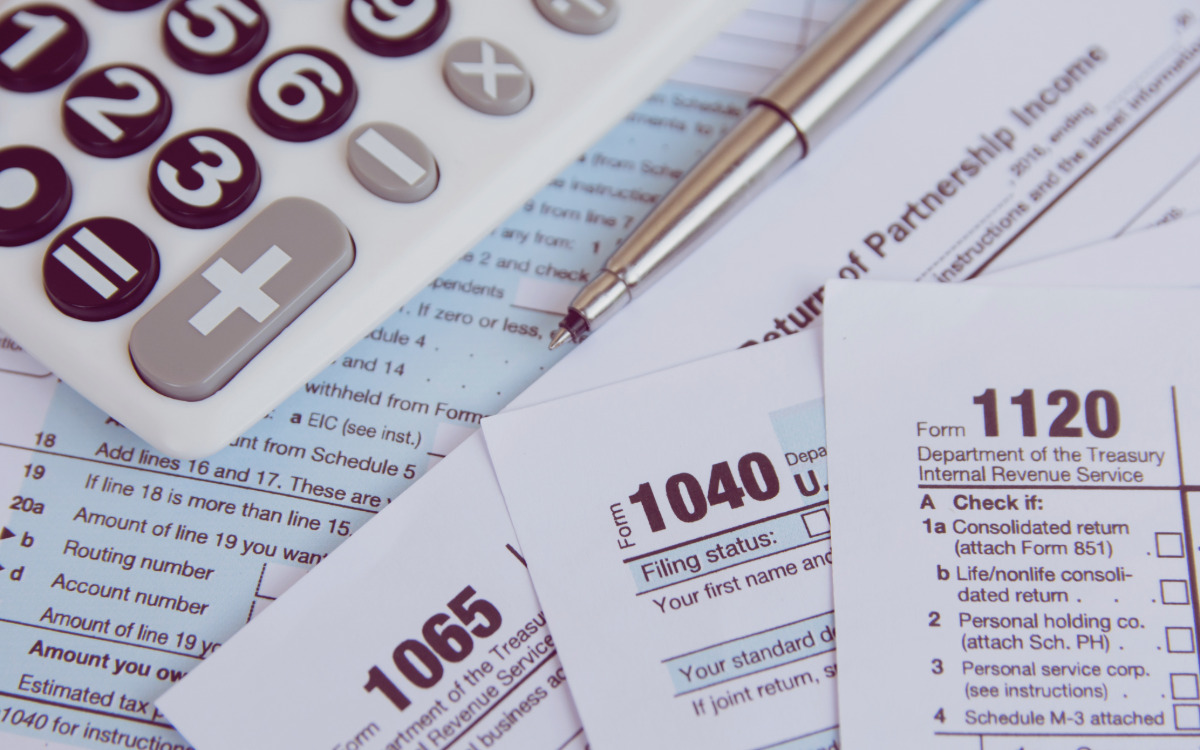We’re now past Tax Day in 2024, which means most people have submitted their taxes unless they filed for an extension or deferment. While many people still await their refund, tax scams are as common as ever. There were over 294,000 IRS identity theft reports in 2023 alone, making it the second most in history. Tax scams come in other forms, too, like unclaimed refunds, fake charities, account services, and more. That’s why it’s important to stay diligent year-round.
Table of Contents
What Are Tax Scams?
Tax scams involve fraudulent activities aimed at stealing money or personal information under the guise of legitimate tax-related interactions. These scams often involve phishing emails, impersonating tax authorities, or fake tax preparation services. Criminals use these tactics to manipulate people into revealing sensitive information or making unauthorized payments. Understanding common tax scams and verifying any suspicious tax communications is crucial.
7 Signs of a Tax Scam
Tax scammers are upfront and take advantage of the stress tax season causes many people. Whether they contact you before or after the tax deadline, they often use high-pressure tactics to get money or personal information.
1. Unsolicited Call From the IRS
Except in rare cases, the IRS will always send you a letter before a call. And even then, they usually let people initiate the call or schedule a time to talk. If you’re not expecting a call from the IRS and they claim to be an agent, then it’s highly likely they’re a tax scammer.
2. Threats of Police or Legal Action
Imposters often try to intimidate their targets by threatening arrest or other legal actions. The IRS will never threaten you over non-payment of taxes or for tax fraud. If something is wrong, they will notify you through official letters and politely work with you to resolve the issue.
3. Robocalls
Unsolicited, urgent, or otherwise, the IRS never uses robocalls to leave messages. A live agent will always speak with you. Robocalls should always be ignored, and if you want to help others, you can report any callback number in the automated message.
4. Requests for Personal Information
Be careful of requests for sensitive information like Social Security numbers, bank account information, or credit card numbers, especially if they come via unsolicited emails or calls. If you’re expecting a call from the IRS and need to validate your identity, they may ask for the last 4 digits of your SSN but would never need the full number.
5. Asking for Payment via Gift Card
The IRS and most organizations will never ask for an unrelated gift card as payment. As soon as someone asks to be paid with one, that’s a red flag to hang up and report the caller. Gift cards are common with scammers because they’re harder to trace and difficult for banks to reverse since the victim made the purchase.
6. Unexpected Tax Documents
If you receive unexpected tax documents before submitting your taxes, such as a refund notice or electronic filing confirmation, you may be an identity theft victim. Contact the IRS as soon as possible to check on your filing status and explain your situation so they can investigate.
7. Fees Based on Refund Percentage
Tax preparers typically charge flat fees based on the complexity of the return. If they offer to charge a percentage of the refund, it incentivizes them to use dishonest tactics to inflate the return amount. Be careful of any tax company or agent that uses this pricing model.
Common Types of Tax Scams
Tax scams can come in many forms. Some types are more evident than others, making it difficult to notice. Many people are cheated without even realizing it until much later, or in some cases, never at all. Here are some of the most common types of tax scams to watch for:
Identity Theft
Tax scams that use identity theft involve fake tax returns using stolen personal information in hopes of taking other people’s refunds. With millions of returns flagged as fake each year, identity theft can delay a legitimate tax return by up to 18 months. It’s important to be careful who you give your information to year-round, as it can be stolen at any point and abused much later on.
Phishing Scams
Often associated with identity theft, phishing scams aim to collect personal or financial information, which is later used against the victim. Personal data can be used to create fake tax returns, access accounts, or even open a new credit card under a person’s name. Financial information, such as a credit card number and a CVV or CID number, can be used to make fraudulent purchases online.
Unclaimed Tax Refund
Someone posing as a tax agent may request personal information to “validate” your unclaimed tax refund, which is then used for identity theft. If they ask for bank or credit card details, they may use them to steal funds directly. This type of scam is more widespread directly after tax season.
Fake Charities
Fraudsters know that many people expect refunds and may have extra money to spend. Fake charities are set up to take advantage of people’s goodwill. Tax season and the holidays are typical times they’ll target people for money. Always confirm that a charity is real before donating to it.
Tax Preparer Fraud
Dishonest tax preparers often exploit clients by charging high fees and using shady methods to increase the return size. All legitimate tax preparers have a Preparer Tax Identification Number (PTIN), so ask for that upfront. And remember, if you make less than $79,000 annually after certain deductions, you can do your taxes online for free.
Ineligible Employee Retention Credit (ERC)
This program is a refundable tax credit for organizations that COVID-19 impacted. Unfortunately, scammers encouraged legitimate owners to take the tax credit they weren’t eligible for. That’s led to around 3.6 million claims, many of which are invalid. The IRS now uses a stricter review system to assess eligibility. False ERC claims may lead to criminal charges against the biggest abusers.
Most Tax Scams Come by Phone or Email
Phone scams commonly use caller ID spoofing to make themselves appear to be someone they aren’t. Rather than pending calls showing as an unknown number, it may say they’re the IRS, the government, or some other official-sounding agency. They may claim you owe money or even legally threaten people by saying their return was fraudulent. The IRS will never threaten you, even if you owe money or made a mistake on your return.
While phone scams aim to get quick results and often use threats, email scams can be harder to notice. Some are more legitimate, neutral-sounding emails that redirect you to a phishing website. They aim to gather personal or financial information, which can later be used for identity theft or money stealing. While the IRS may email or call on rare occasions, remember that they will always send notifications via letter first.
Always Call the IRS First Unless Expecting a Callback
While not every call from an unknown number is a scam, you can never be too careful when it comes to the IRS. Unless you are expecting a callback or have been notified of an upcoming call via letter, do not give any information to whoever is on the line. It’s rare for the IRS to call people directly. When in doubt, ask for their name, tell them you’ll call back, and reach out through an official IRS channel.
An IRS IP PIN Can Help Prevent Identity Theft
An IRS Identity Protection PIN (IP PIN) is a handy tool designed to prevent tax-related identity theft. It is a six-digit number that the IRS assigns to taxpayers to help secure the filing of their federal tax returns. This number is known only to the taxpayer and the IRS, providing an extra layer of security that helps ensure the person filing a tax return is who they say they are.
Having an IP PIN is particularly beneficial for those who have either been victims of identity theft or are at risk of it. Each year, the IRS sends a new IP PIN to enrolled taxpayers, which must be correctly entered on federal tax returns for the IRS to accept them. Taxpayers can opt into this program through the IRS website between mid-January and mid-November.
How Do You Report a Tax Scam?
The IRS provides multiple ways to report tax scams through its website. Which method to use depends on the type of scam. Additionally, if you lose money from an IRS-related scam, you can report it to the FTC and TIGTA to help reduce the chance of others getting cheated. Whether it’s a tax scam or otherwise, if your money ever gets stolen, contact your bank right away. Depending on how the money is sent, they may be able to reverse the charge.
Always Be Careful of IRS Tax Scams
Whether you’ve received your tax return or not, always be careful of tax scams. Fraudsters will continue to pretend to be IRS agents for months following tax season, with threats of audits, legal action, or collecting underpayments. Don’t give in to the pressure; reach out to the IRS through official channels. If someone attempts to scam you, make sure to report it to make it that much harder for them to cheat other taxpayers.




